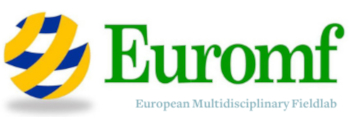Bucharest 2017 - Invitation and Programme
Protection gap for migrant workers in the EU
Focus on working and living conditions for migrant workers and their families
19 and 20 October 2017, Bucharest
Organisation: Euromf vzw
Supported financially by the European Union
Owing to the European unification we notice a continuously growing stream of labour migrants from low-wage countries to the richer countries of the EU.
This puts considerable pressure on pay and labour conditions and protection by social security in the host countries, resulting in quite some uncertainty and unrest, which in turn give cause for strong protest. As a result these issues are getting moved higher up on the European agenda.
But apart from these direct consequences there are lots of side effects that are less in the spotlights.
For example, in the countries of origin a lot of professional and technical knowledge disappears, which slows down the local economic development. Families are being separated and children grow up without role models (Euro Orphans). Often, in the host countries systems of exploitation come into existence in the fields of housing, health care and payment of wages and compensations.
The aim of this project is to map all components that determine the life of a labour migrant and to use this to bring about an awareness in the social partners and the EU policy makers to approach this issue from a broader perspective than just taking some measures for equal pay and labour conditions.
The side effects should be taken along in the further social dialogue.
At the moment the core business of the labour unions is still too much and too exclusively aimed at pay and labour conditions and protection by social security. However, labour should be seen as a part of life as a whole, and should serve as a lever for the social and economic development of the employee (in this case, the labour migrant) and his or her family.
The accompanying measures are equally important to the pay and labour conditions.
With this project we want to present an overview of the various components that play a part, directly and indirectly, in the life of a labour migrant in the EU. These elements concern both pay and labour conditions and protection by social security, and the accompanying consequences resulting -not always voluntarily- from this choice.
In the course of the project, experiences from the working area, research results and results of ongoing talks, will be listed and exchanged, also between the various host countries and countries of origin.
Issues being attended to will certainly be pay and labour conditions, mechanisms of exploitation, protection by social security, housing, health and protection, family issues, loss of economic developing power, etc.
As regards the various project themes, we want to cooperate with academics, field workers and trade union activists from the broad labourer’s movements.
A clarifying real-life example will be incorporated in the project.
During the seminar there will be ample time for participation and discussion in the plenary group. Discussion will take place in the plenary group because of the limited translation possibilities. We hope that discussion in the groups can lead to solutions, which we can present afterwards to the EU policymakers.


